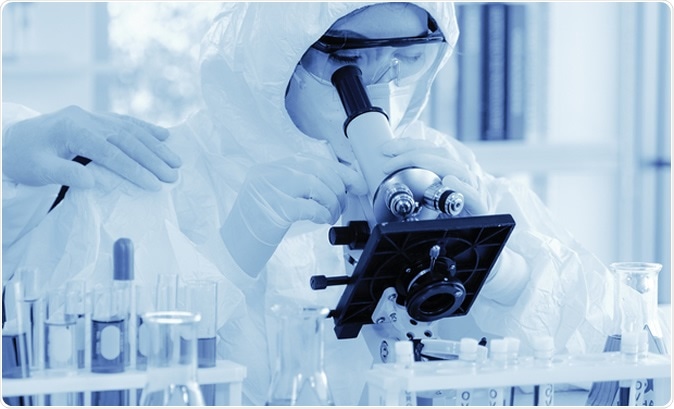Over 100 candidate vaccines are being explored as a means of ending the COVID-19 pandemic. Eight of these have already made it to clinical trials in humans, and another 94 are in the pre-clinical evaluation stage.
This week, the first human trial of a vaccine against the severe acute respiratory syndrome coronavirus 2 (SARS-CoV-2) in Australia started in Melbourne, with about 130 people enrolled in the program.

Image Credit: Mongkolchon Akesin / Shutterstock
Hon. Frank McGuire, the Victorian Parliamentary Secretary for Medical Research, formally launched the trial in Melbourne, saying that it was a significant step towards saving lives.
"As the first human trial in the southern hemisphere, and one of only a handful of COVID-19 human trials worldwide, I am delighted Victoria is again at the forefront in leadership and excellence in medical research. The combination of expertise, institutional clout, and commitment is vital in the race for a reliable, safe, and effective vaccine. We hope these trials make a significant contribution to the discovery of a vaccine that would ultimately benefit hundreds of millions of people around the world," he said.
The vaccine
Vaccines are proven to be the most economical and effective way to prevent and control infectious diseases. Many countries, companies, and institutions announced their programs in vaccine development against the novel coronavirus.
Australia's potential vaccine, NVX-CoV2372, is a recombinant spike protein nanoparticle vaccine. Developed by Novavax, a U.S. clinical-stage biotechnology company, the vaccine aims to induce an immune response against the SARS-CoV-2, preparing the body to fight the virus when it contracts it.
The scientists used the nanoparticle technology of Novavax to craft the potential vaccine. It contains the patented saponin-based Matrix M™ adjuvant to enhance the immune response and trigger high levels of neutralizing antibodies.
Nucleus Network is set to spearhead the vaccine trial, as requested by Novavax, in its Melbourne and Brisbane clinics.
"Nucleus has a rich history of Phase 1 vaccine trials and a long-standing track-record with Novavax. This is the third confirmed global COVID19 vaccine trial and the first in Australia, and we are well-positioned to implement rapid testing with first-in-human trials over the coming weeks," Cameron Johnson, Nucleus Network CEO, said.
"With the capacity to conduct this trial across both our Melbourne and Brisbane clinics, we will be assisting Novavax to undertake Phase 1 trials and fast track NVX-CoV2373 to potential subsequent development as soon as possible," he added.
The trial
The participants enrolled in the program are healthy individuals between the ages of 18 and 59, and if it is successful, the researchers hope to make 100 million doses by the end of the year. By next year, the firm plans to produce 1.5 billion doses.
During the trial of the candidate vaccine, the researchers will monitor the type and number of antibodies in the blood of the participants.
"We look for antibodies and the type and number of antibodies, then we take some things out of the subjects through those blood tests and do a lot of laboratory experiments to show that it neutralizes the virus and protects against the virus," Dr. Paul Griffin, an infectious diseases expert, said.
The Norway-based Coalition for Epidemic Preparedness Innovations (CEPI) funded and supported the vaccine trial, in the hopes of finding an effective and safe vaccine to help stem the spreading pandemic.
The institutions believe that the trial offers the first critical step into creating a promising vaccine that can accelerate into the next phase of development.
"I think there is a lot of variables still to be determined. But we're working harder than ever to progress as quickly as possible, and there may be a significant number of doses available perhaps even by the end of the year," Dr. Griffin said.
The coronavirus pandemic has left many countries struggling to cope with the increasing number of cases. The global case toll has topped 5.69 million, with more than 355,000 deaths. The United States has reported the highest number of confirmed cases, with almost 1.7 million infections.